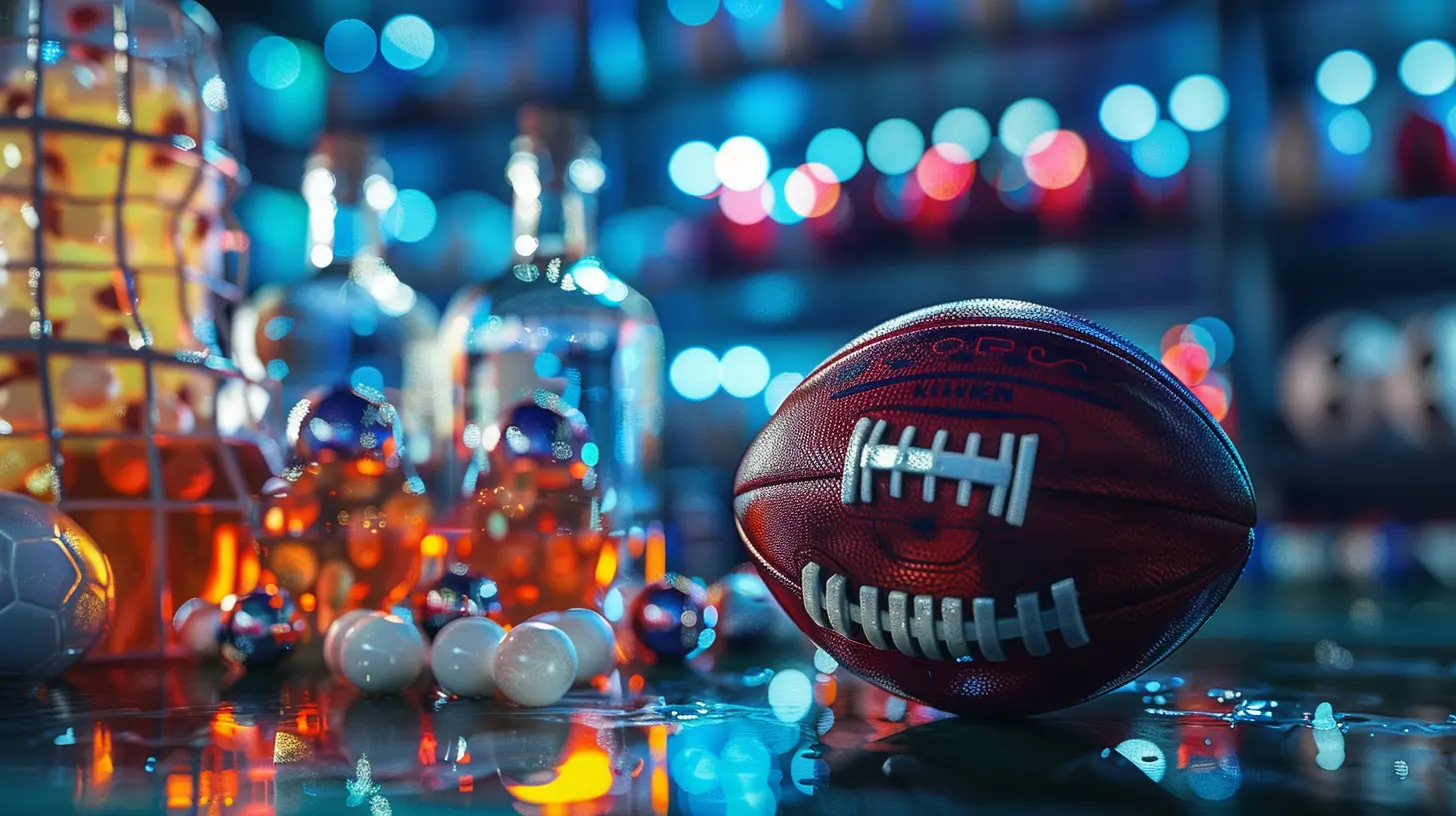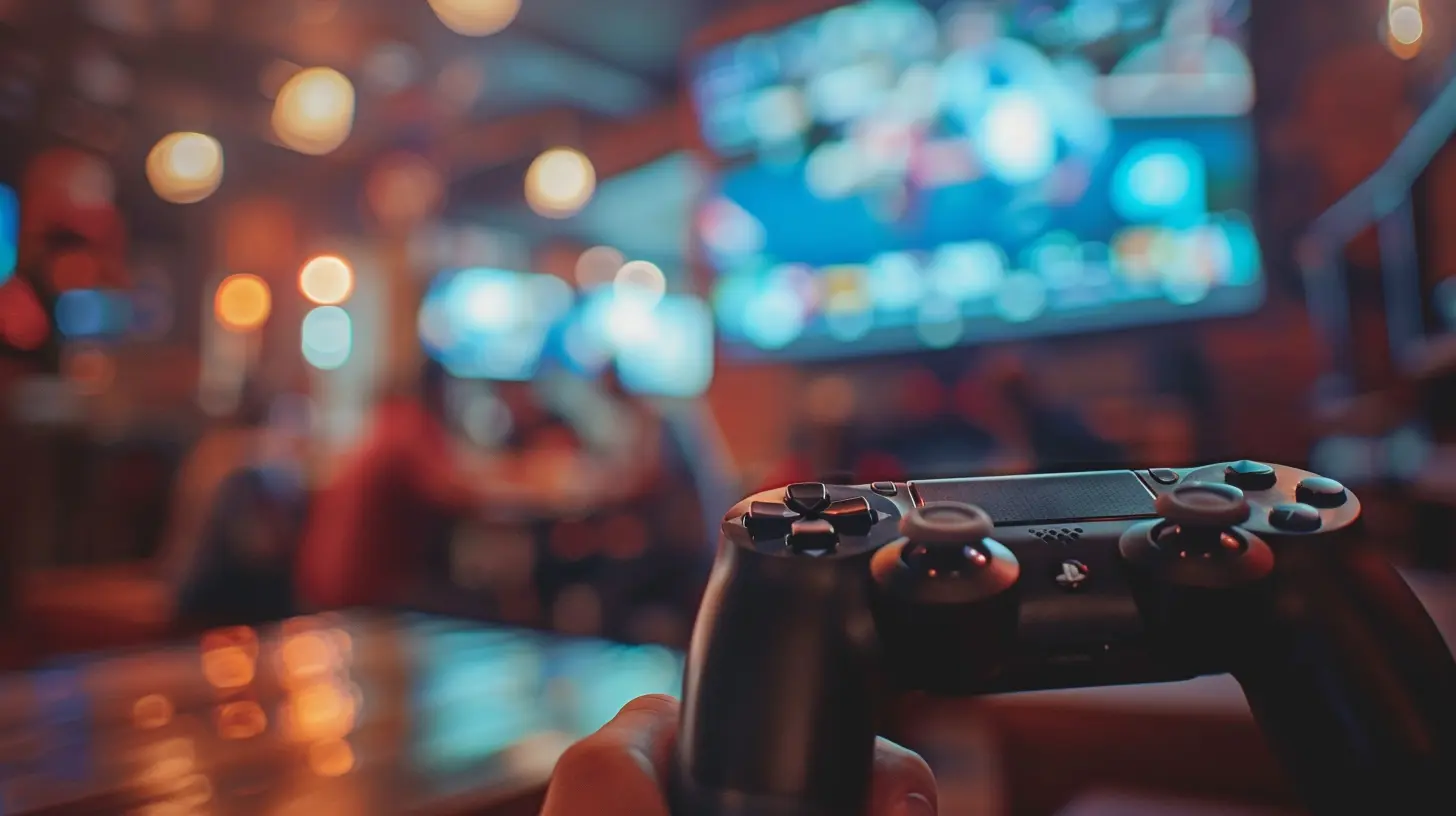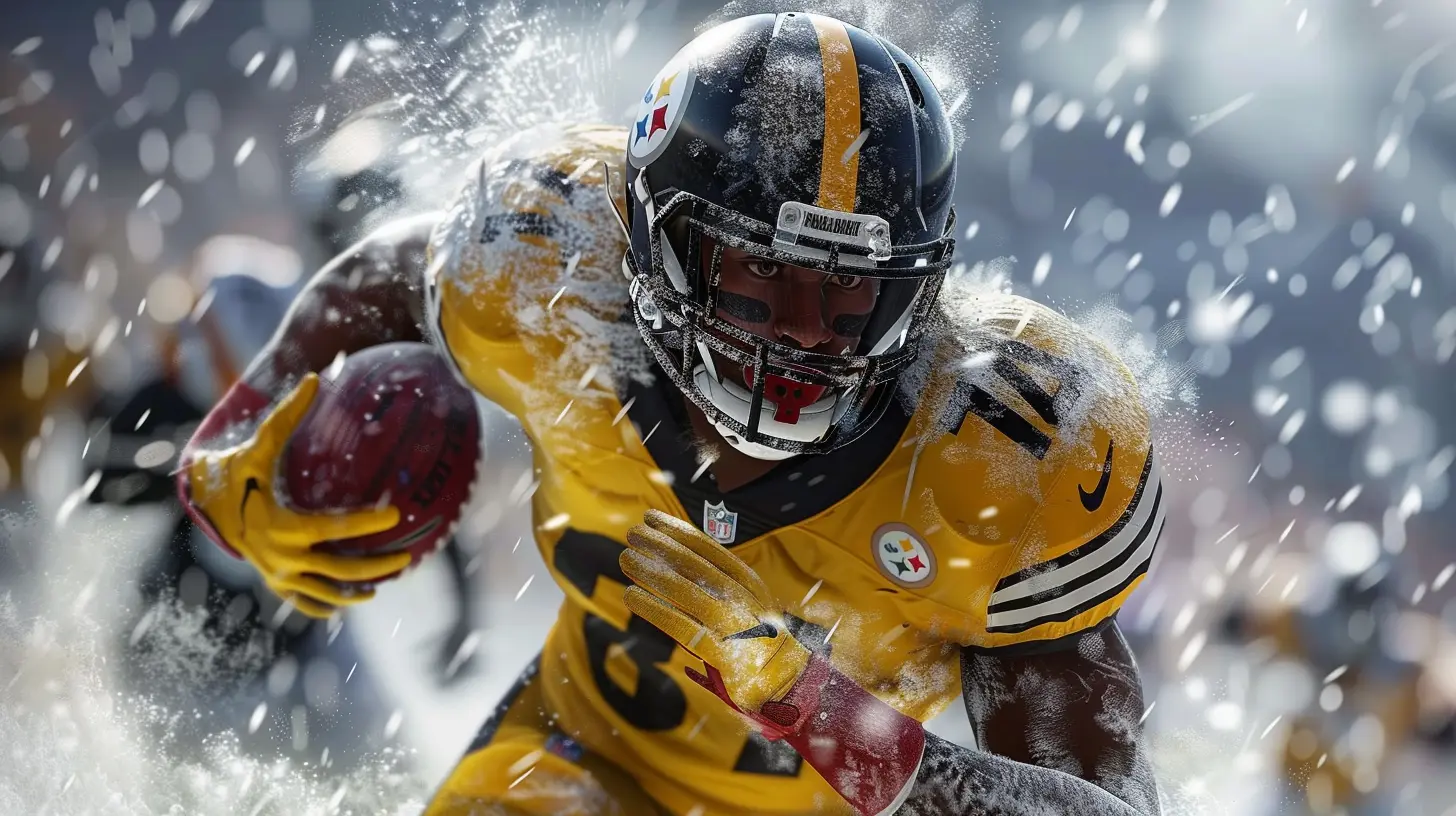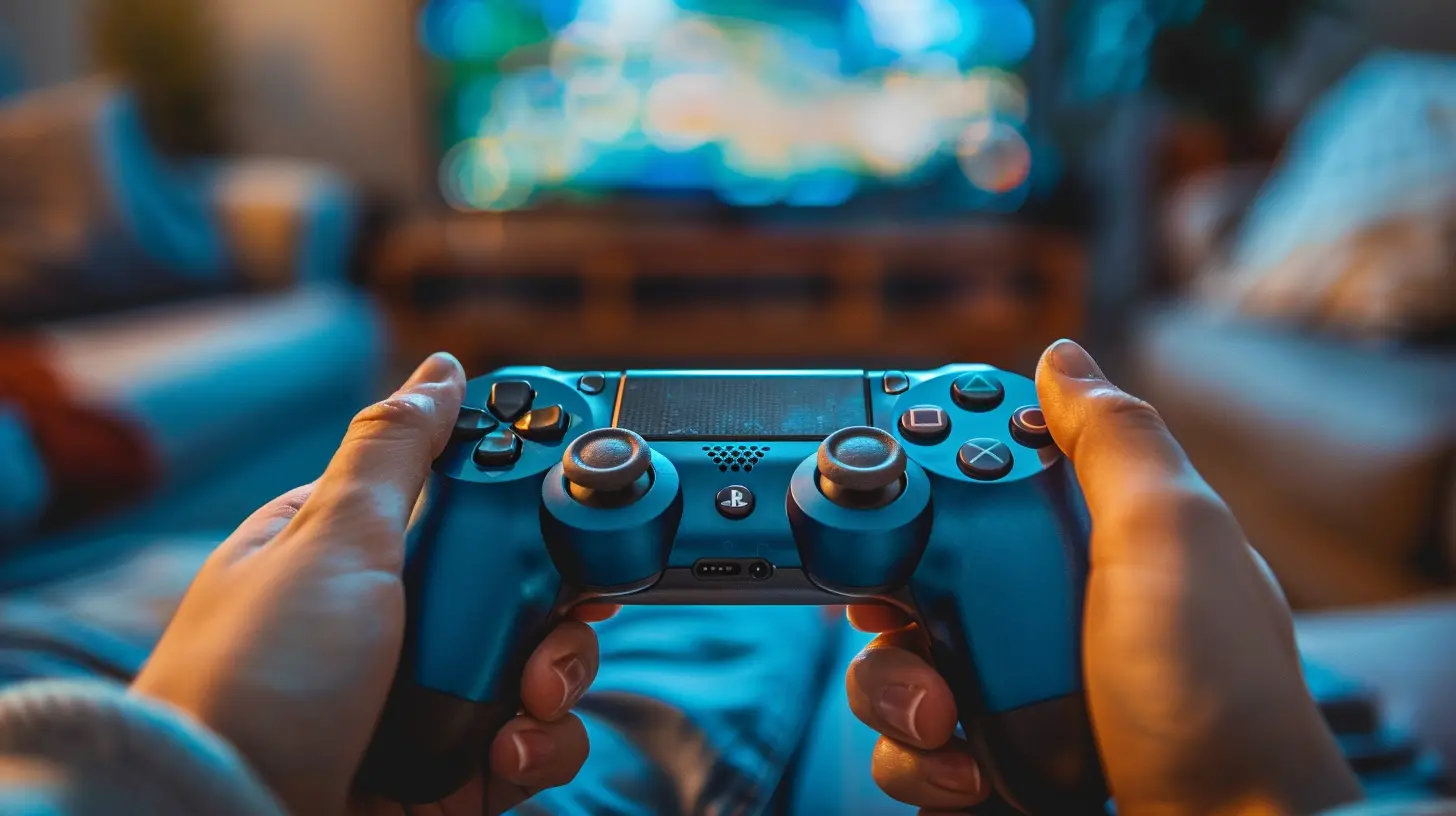Why Team Chemistry Matters in Sports Game Simulations
18 October 2025
When we talk about sports game simulations, most of the buzz focuses on player stats, fancy algorithms, and advanced gameplay mechanics. But there’s one vital aspect that often slips under the radar—team chemistry. Yep, you heard me. Even in the digital realm, the synergy between players matters big time.
Sure, we’re not dealing with real-life locker room dynamics, sweaty halftime pep talks, or crushing egos on a bad day. But here’s the kicker: in sports game simulations, team chemistry can be the game-changer that separates a championship dynasty from a season-ending flop. Whether you're a couch coach in “FIFA,” a dynasty builder in “NBA 2K,” or a diehard GM in “Madden,” ignoring team chemistry is like trying to bake a cake without flour—it’s just not going to turn out right.
So let's break it down. Why does team chemistry matter so much in sports game simulations? And how can you level up your virtual squad by understanding this digital secret sauce?

What is Team Chemistry in Sports Game Simulations?
First things first, let’s define what we’re talking about. Team chemistry in sports game simulations refers to how well your virtual players gel together during gameplay. Think of it as the digital equivalent of camaraderie, trust, and shared understanding on a real-life sports team. It’s not just about who has the highest overall rating or best stats on paper; it’s about how those players perform together.Game developers bake this concept into their mechanics to mimic real-world sports. After all, we’ve all seen teams with insane individual talent flop because their players couldn’t sync. It's like tossing five star chefs into a kitchen without a recipe—you need coordination to cook up something special.
In sims, team chemistry isn’t just a “nice to have.” It directly impacts things like passing accuracy, defense cohesion, shooting consistency, and overall player morale. In short, it can make or break your in-game success.
How Do Developers Incorporate Team Chemistry Into Sports Sims?
Ever notice how certain lineups play smoother in “FIFA” Ultimate Team, even if their overall ratings aren’t the highest? Or why your "superteam" in “NBA 2K” can't seem to close out games despite having the league’s best talent? That’s team chemistry at work, and game developers use clever mechanics to make it feel authentic.Chemistry Ratings and Links
Take “FIFA Ultimate Team” (FUT), for instance. Players have chemistry ratings based on factors like nationality, league affiliation, and club connections. Pairing players from similar backgrounds boosts their chemistry, while mixing oil-and-water combos (like players from completely different leagues or nations) takes a toll.That’s the devs' way of saying, "Hey, even in virtual soccer, familiarity matters." A team with low chemistry might fumble passes, botch positioning, or feel sluggish overall. On the flip side, a high-chemistry squad feels like a well-oiled machine, zipping the ball around with precision.
Morale Systems
Games like “Madden NFL” or “Football Manager” go even deeper by incorporating morale and relationship systems. Players who are unhappy—whether it’s due to a lack of playing time, contract disputes, or poor leadership—can tank your entire chemistry rating. You’ve got to manage egos, motivate your stars, and keep everyone on the same page. Sound familiar? That’s because it mirrors real-life locker room drama!
Why Team Chemistry Impacts Your Gameplay
So, why should you care about this virtual glue holding your team together? Well, let’s put it this way: imagine you’ve just scored a superstar player, someone with insane ratings. You plug them into your lineup, hyped for domination, only to see your team fall apart. What gives?The answer: team chemistry.
1. Better Coordination = Smoother Gameplay
In sports sims, a team with high chemistry feels... seamless. Passes connect like clockwork, players cover for each other on defense, and your strategy clicks into place. Without chemistry, even basic plays can feel disconnected, like trying to assemble IKEA furniture without instructions.2. Boosts Player Attributes
Ever notice how chemistry can impact stat boosts in modes like “FIFA Ultimate Team”? That’s not just for show. A high-chemistry team can elevate your players’ strengths, while a low-chemistry lineup drags them down. It’s like giving your squad a collective confidence boost or slapping weights on their ankles—it makes a difference.3. Enhanced Decision-Making AI
Good chemistry doesn’t just impact how your team performs when you control them; it also affects their AI. A high-chemistry squad makes smarter decisions, moving into space, anticipating passes, and executing plays more effectively. With low chemistry? It’s like every player is stuck in their own little world, ignoring everything around them.
Building Team Chemistry: Tips and Tricks
Alright, so we’ve hammered home why team chemistry matters. But how do you actually build it? Here are a few tips to help you dominate your sports simulation games by fostering that sweet, sweet synergy.1. Start With the Right Pieces
When drafting or selecting players, don’t just focus on individual stats. Look for players who fit your system, complement each other’s playstyles, and have natural synergy (e.g., same league, nationality, or play archetype).2. Use Training and Development
Many sports sims include training drills, player development programs, or practice modes. Use these to enhance team chemistry by building familiarity between players. Think of it as a digital bonding exercise—like a team retreat, but way less awkward.3. Manage Morale Wisely
Keep an eye on morale systems in games that include them. Rotate your squad to keep bench players happy, offer better contracts when needed, and address disputes early before they spiral into full-scale mutinies.4. Be Patient
Chemistry takes time. Just because you’ve assembled a killer lineup doesn’t mean instant success. Play games, grind through seasons, and let your players naturally gel. Rome wasn’t built in a day, and neither is a championship squad.Are Developers Going Deeper With Chemistry Mechanics?
Here’s the thing, though: as gaming technology evolves, so do team chemistry systems. Developers are constantly finding ways to make these mechanics more realistic and impactful.Take “Football Manager,” for example. Its chemistry system dives into things like personality clashes, preferred playing partners, and even how well a player fits into a particular tactic. Meanwhile, “NBA 2K” includes leadership badges and attributes, capturing the influence of on-court leaders on team performance.
It’s not just about creating an immersive experience (though that’s a big part of it). By emphasizing team chemistry, developers reinforce the idea that building a winning team isn’t just about stacking stats—it’s about strategy, relationships, and the human side of sports, even in a virtual world.
Wrapping It Up: Chemistry Is the Secret Sauce
Here’s the takeaway: team chemistry isn’t just a cool extra feature in sports game simulations—it’s the heart and soul of your team. You can have all the talent in the world, but if your players aren’t on the same page, you’re going nowhere fast.Whether you’re crafting the perfect “Madden” franchise, assembling an unstoppable “FIFA” squad, or diving deep into the complexities of “Football Manager,” pay attention to chemistry. It’s the glue that holds your team together, the X-factor that transforms a good team into a great one.
So next time you’re tweaking your lineup or scouting new players, ask yourself: how’s the chemistry? Because in sports sims, just like in real life, no player is an island.
all images in this post were generated using AI tools
Category:
Sports GamesAuthor:

Leandro Banks
Discussion
rate this article
1 comments
Melissa Watson
Team chemistry in sports game simulations enhances player performance, strategy coherence, and overall enjoyment. By reflecting real-world dynamics, developers can create more immersive experiences that mirror the complex interactions and relationships crucial for success in team sports.
October 19, 2025 at 3:42 AM


